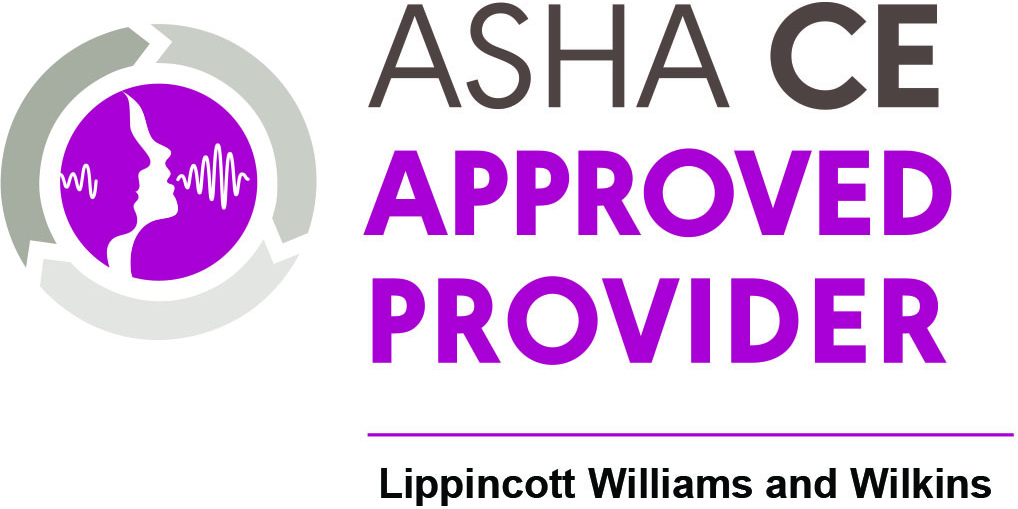{{ (moduleVm.actions && moduleVm.changeStatus) ? moduleVm.status : '' }} Aphasia Topics
Activity Steps
Description
Note: ASHA CEUs cannot be reported to ASHA unless your ASHA member number is included in your profile.This learning activity consists of the 5 articles from the Topics in Language Disorders journal's July-Sept. 2022 issue. These articles provide speech-language pathologists (SLPs) with information about the importance of identifying patient-specific factors that account for variability in recovery from aphasia. Patient-centered care and strategies of how to maximize potential treatment-related gain for persons with aphasia are addressed in this program.
Accreditation
This course is offered for 0.65 ASHA CEUs
(Intermediate Level, Professional Area)
Purpose of Activity
To gain knowledge about SLP provision of care for patients with aphasiaLearning Objectives
After completing this continuing education activity you will be able to:
- Recognize the importance of identifying patient-specific factors that may account for variability in recovery from aphasia.
- Explain how patient-centered care for persons with aphasia has become common and foundational to assessment and treatment of impairment and/or daily life function.
- Compare speech-language interventions for aphasia to maximize potential treatment-related gains.
Disclosures
Author disclosures can be found at http://links.lww.com/TLD/A91.
Article #1 Title: "Is there a Relationship Between Cortisol and Treatment Response in Chronic Aphasia?" Funding Disclosure: Author Michelle Gravier received a Competitive Pilot Project Award from the Veterans Health Administration VISN 4. Authors William D. Hula and Michael Walsh Dickey disclose that they received a VA Merit Award #I01RX000832.
Article #2 Title: "A Scoping Review of the Relationship Between Nonlinguistic Cognitive Factors and Aphasia Treatment Response" Funding Disclosure: The authors were supported by the National Institute on Deafness and Other Communication Disorders (NIDCD) of the National Institutes of Health (NIH) under award number R01DC017711 awarded to SMH. Additionally, Victoria Diedrichs was supported, in part, by the National Center for Advancing Translational Sciences of the National Institutes of Health under Grant Number TL1TR002735.
Article #4 Title: "Motivation as a Predictor of Aphasia Treatment Outcomes: A Scoping Review" Funding Disclosure: This project was funded in part by Department of Veteran's Affairs Rehabilitation Research and Development Service (United States) grants I01RX003093 and I21RX003474, and Atlanta VA CVNR Center Grant C2358-C.
Credits:
- ASHA 0.65 CEU